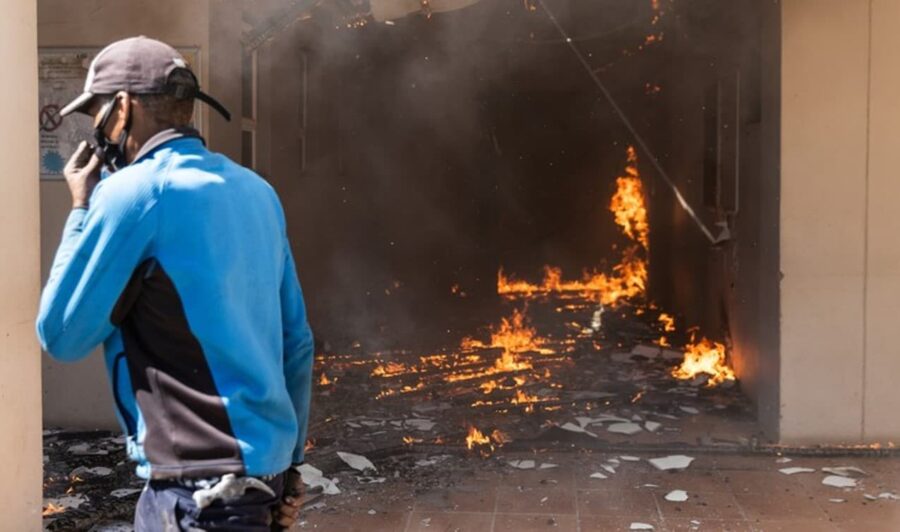
Swellendam community centre burnt down in electricity protest
Police and protesters exchange rubber bullets and stones
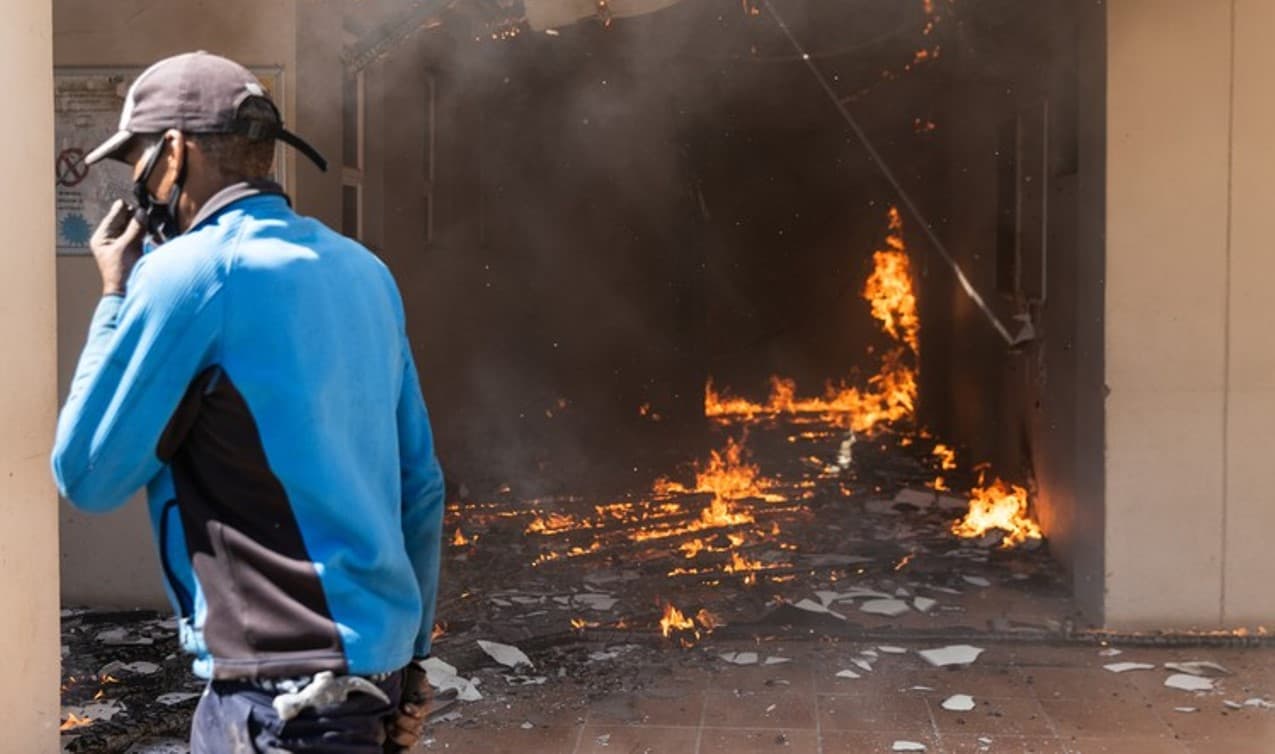
A protest has once more turned violent in Swellendam. On Wednesday morning the Thusong service centre – a municipal building – and a vehicle were set on fire.
- A municipal service centre and a fire rescue vehicle were torched as protests erupted in Swellendam over electricity tariffs.
- The Western Cape government called for a swift response from law enforcement.
- There have been several protests in Swellendam in the past two months about electricity tariffs and access to the free quota of electricity for low-income households.
The protest comes after a month of tensions in this Western Cape town. The main issues, according to the protesters, are high electricity tariffs and the town’s indigent policy. Protesters demanded to speak to Mayor Francois du Rand.
A peaceful protest took place on 30 August. Then a memorandum was handed over to the mayor. But a protest earlier in August saw a municipal office torched and shops looted.
Several roads were blocked by bricks in the Railton area of Swellendam on Wednesday.
The N2 was also closed by the police for most of the morning.
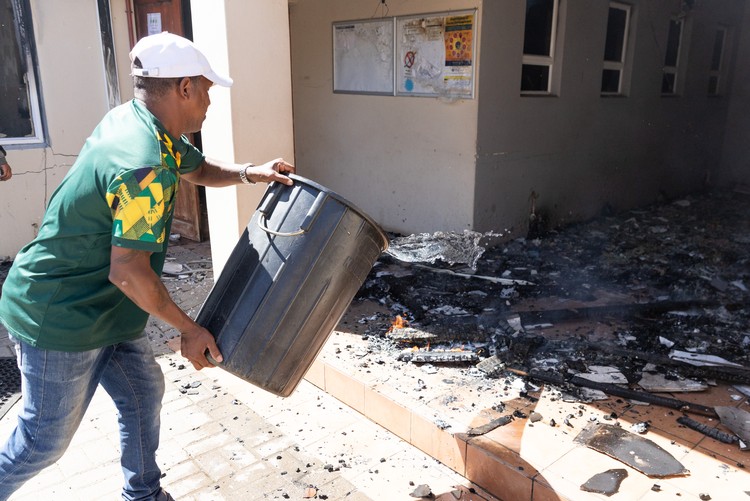
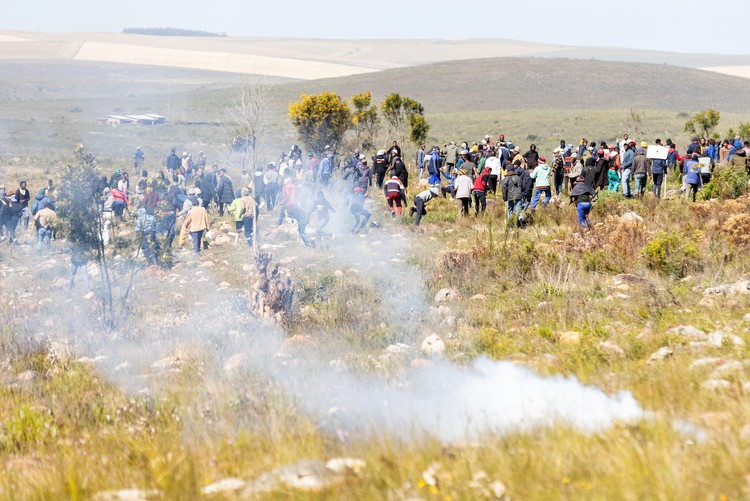
Swellendam is a popular tourist destination
Swellendam is divided by the N2 highway. The main town on the north-west of the road is well-off, and is a popular tourist destination. On the south-east is Railton, a township with formal housing. Alongside it is Plakenspark, an informal settlement, mostly made up of shacks. The protesters have mainly been from Plakenspark.
GroundUp witnessed a standoff between the police and protesters on the hill across from the informal settlement. Rubber bullets and teargas were fired by the police to disperse the protesters and to stop them from going onto the highway. Some protesters threw stones.
The protests started overnight after community members called for a “shutdown”.
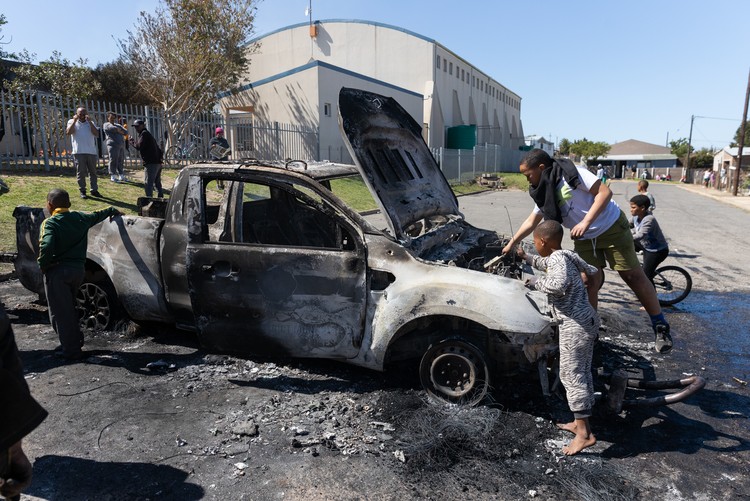
Protester’s Concerns about Electricity
It was difficult to talk to any of the 100 or so protesters because they were scattered across a wide area and hid from the police. But in a memo they wrote for the 30 August protest, they complained that their concerns about electricity and the town’s indigent policy were unresolved. (The indigent policy deals with how much free electricity and water low-income households are entitled to.)
At issue is the 18.5% increase in electricity tariffs that was implemented in July, and a decision that households qualifying for the indigent policy benefits would have to reapply for them annually.
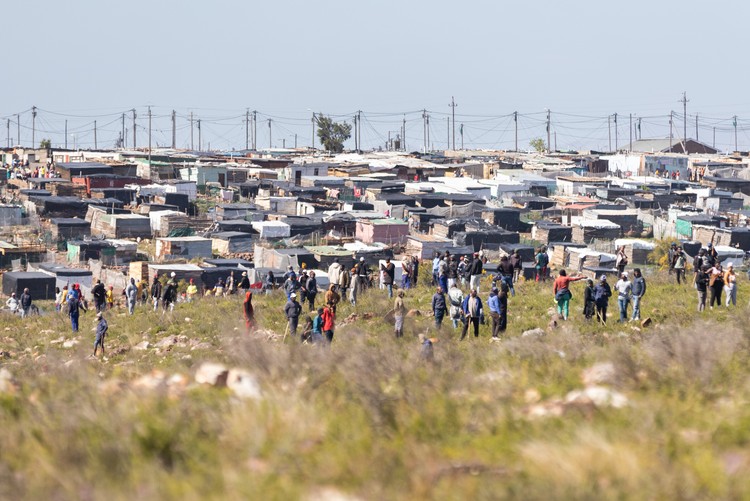
Swellendam resident Enrico Merts came to see what was happening. He said people were burning and throwing tyres since early morning. “It was difficult this morning. I don’t know where the mayor’s people are so they can talk to the community.”
Referring to the burnt Thusong centre, he said: “Who’s going to pay for this?”
He said the building is used for community meetings, applying for IDs and social grants. “This is the only place. This is terrible.”
His daughter could not attend school on Wednesday, because it was closed due to the protest.
“We had a meeting with the mayor but he never came back after that. My electricity [bill] is also too much now,” said Merts. “I had a baby born on Mandela Day. So it’s difficult for me.”
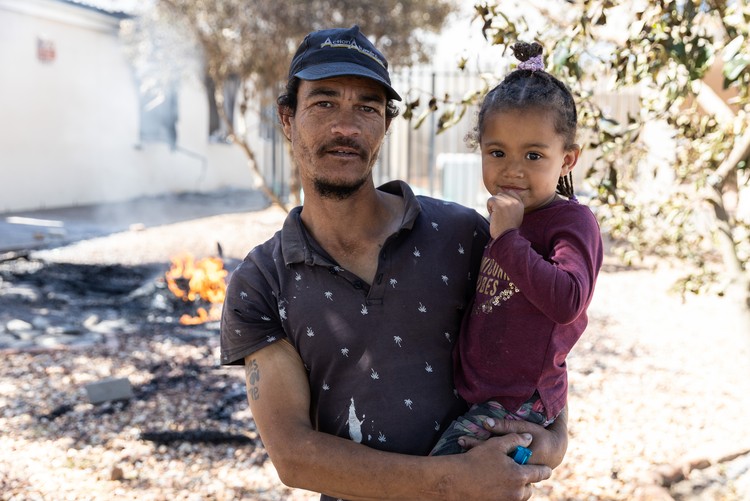
In a statement titled “Swellendam once again under attack by a campaign of terror”, Mayor du Rand said that the destruction of the service centre was a “significant setback for the entire community, especially residents of Railton”.
“At the same time, a fire truck deployed to douse the fire engulfing the Thusong centre has also been set alight,” he wrote.
He said the municipality “has made considerable efforts to engage indigent residents of Railton who qualify for subsidised services and to assist with registering them”.
He defended the annual renewal requirement: “This was done to ensure those who could afford services, were no longer unfairly benefitting from a system that is meant for those residents who live in dire conditions and need subsidised services.”
ALSO READ: Swellendam protesters torch municipal offices
“This change in policy by the municipality has evidently angered those who felt entitled to continue drawing free services from the municipality when they did not qualify for these subsidies. They wanted to continue benefitting at the cost of indigent residents.”
ANC Overberg Acting Regional Secretary Raymond Nongxaza said that the protests were a result of the municipality’s unwillingness to engage. But he condemned the violence at Wednesday’s protest.
The municipality, on Tuesday, threatened “legal consequences” for violent behaviour.

